Financial assistance available for all EMBL courses and conferences
You’ve just found the perfect training to help you in your research or career. You excitedly scroll through the programme looking at all the relevant topics and big names, and already envision the breakthroughs you are going to make after attending the training course or conference. You can even make the application deadline! Just one last thing – how much will it all cost? Can you or your lab even afford that? This is where we come to the rescue!
EMBL offers various types of financial assistance in cooperation with the EMBL Corporate Partnership Programme, EMBO and Boehringer Ingelheim Fonds. We support scientists wishing to attend our events by waiving their registration fee, reimbursing part of their travel and childcare costs or providing onsite childcare. In 2019, a total of 410 fellowships were granted to help train scientists from around the globe. So, prepare your conference abstract or course motivation letter well and your chances to be awarded a fellowship are pretty high.
For our virtual conferences and courses organised by EMBL Heidelberg, there is also the possibility to apply for a childcare grant provided by the EMBL Advanced Training Centre Corporate Partnership Programme, to offset childcare costs incurred by participants or speakers when participating at a virtual event. Eligible costs include fees for a babysitter or childcare facility or travel costs for a care giver. For more information visit the Financial Assistance website of the respective virtual conference or course.
For a more detailed overview of the types of fellowships EMBL offers, go to our website. And if it so happens that your application to receive a fellowship is unsuccessful, consider approaching your institute, as well as other organisations that can support your attendance. A list of some of these organisations is available here.
Here is what some of the past fellowship awardees have to say about their experience:
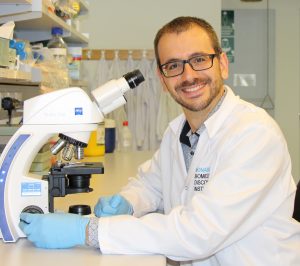
“It was an honour to receive a fellowship from such an important scientific organisation. By attending the Organoids symposium, we acquired a snapshot of the current advances in the field and also a flavour of what would be the future technologies. We realised that the next step in terms of methodology for our organoid work was the development of robust imaging and drug screening capabilities. Our Institute is located in Australia, which means the cost of attending conferences in Europe is very high. Receiving financial support to attend a scientific conference is critical, especially for early-mid career researchers with limited funding capabilities.”
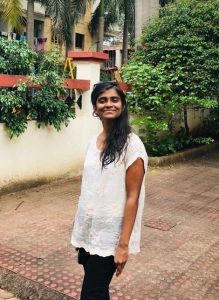
“I study activity mediated translation in neurons with focus on the role of RNA binding proteins such as FMRP in regulating translation downstream of glutamate receptors such as mGluR and NMDAR.
While I was at The Complex Life of RNA symposium in 2018, held at EMBL, I was able to present my work as a poster to several researchers. One such researcher from Norway got interested in my work and offered to host me for a short term in his lab to enhance my current project. After several correspondences, I was able to design a project that could also potentially start a collaboration between my home lab in India and his lab in Norway. I applied for the EMBO-STF (Short Term Fellowship) and I was successful in securing this grant for my visit to Norway. So, I believe attending this conference was a great boost for my scientific career.”
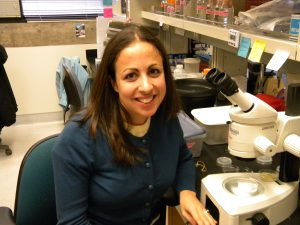
“My research focus is on genetics of DNA repair and meiosis. As faculty of a teaching-focused liberal arts college (undergraduate only) I am reliant upon conferences to keep up-to-date with recent discoveries in my field, to develop new collaborations and to gain valuable feedback on my research. I consider these experiences pivotal to my success as a researcher, both for training our next generation of scientists (most of my students I work with go on to get PhDs) and for my ability to secure grant funding. By far the most stimulating conferences I’ve been to as a PI have been EMBL and EMBO-sponsored.”
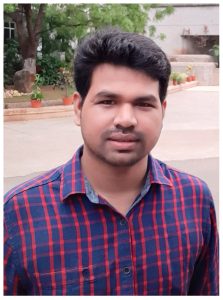
“My research is focused on understanding the role of exosomes in the progression of glioblastoma. While working on this particular area, I found significant difficulties in getting a pure population of exosomes as it is often contaminated with other biomolecules. As a result, we were in delusion whether the data which we were getting was the effect of exosomes or other biomolecules.
Fortunately, I found this course focusing on the isolation and purification of extracellular vesicles, which was extremely important for my research work. We were trained to use cutting-edge research tools for extracellular vesicles and learned bioinformatic analysis of biomolecules that are present in exosomes. I also got an opportunity to interact with world-leading researchers and discuss my research. ”
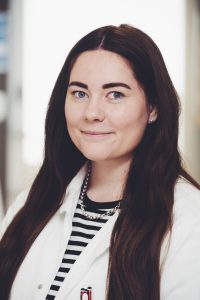
“Financial support for scientists within my institute is vital in ensuring we are able to travel overseas to make new connections and learn more about the happenings within our respective fields. New Zealand is geographically isolated, so travel can be expensive which means all financial support is beneficial in helping us to travel beyond Australia and New Zealand and learn more.”
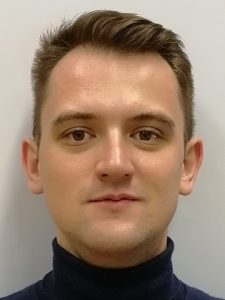
“The Liquid Biopsy course gave me plenty of new insights for different applications of the technique in cancer research. I learned new techniques, discussed my project with top peers and met a lot of highly motivated young professionals. I incorporated the learned applications in my research and this really improved my current project.”
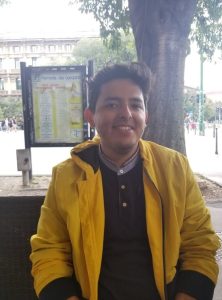
“I study how changes in chromatin during ageing regulate transcription and cell survival in Drosophila photoreceptor neurons. I attended the ATAC-seq course, which helped me get a hold of a new genome-wide technique that we have not used in my lab before, and I got to apply it to my PhD thesis. Also, thanks to the course and meeting one of the course instructors, I will go back to EMBL in April to take part in the scientific visitor programme.”